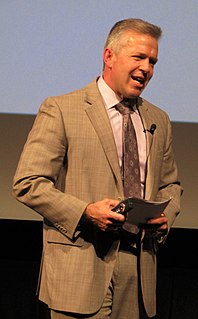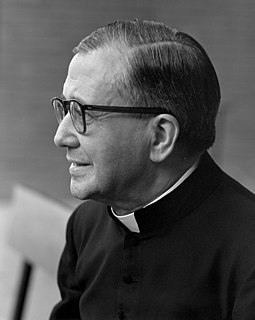A Quote by Jimmy Carter
On Saint Paul, he's probably one of the best theologians of all time, but I don't believe that some of his teachings are appropriate today.
Quote Topics
Related Quotes
It is an irrational claim to believe in the teachings of Jesus Christ and at the same time to hold that the greater part of his teachings have no application at the present time. If you say that the reason why the powers do not follow them that believe (as Christ said they would) is because you have not faith enough and are not pure enough-that will be all right. But to say that they have no application at the present time is to be ridiculous.
A practice that is suitable for one person is not necessarily suitable for someone else, and a practice that is appropriate for one person at one time is not necessarily appropriate for that same person at another time. Buddha did not expect us to put all his teachings into practice right away--they are intended for a great variety of practitioners of different levels and dispositions.
Saint Augustine cries, Lord I cannot love you, but come in and love yourself in me. According to Saint Paul, we must put off our own natural form and put on the form of God, and Saint Augustine tells us to discard our own mode of nature; then the divine nature will flow in and be revealed. Saint Augustine says, Those who seek and find, find not. He who seeks and finds not, he alone finds. Saint Paul says, What I was, was not I, it was God in me.
Some of the parables that Matthew records and that Jesus delivered as part of his Olivet Discourse-such as the ten virgins and their lamps or the servants and the talents they were given-are some of the best known of Jesus' teachings. Reading them in the context of his prophecies about the end of the world, however, makes them clearly parables of preparation. To be on his right hand with his "sheep" rather than at his left hand with the "goats" at his return, we must prepare ourselves now.
Timothy's great value was that he was always willing to go anywhere; and in his hands a message was as safe as if Paul had delivered it himself. Others might be consumed with selfish ambition; but Timothy's one desire was to serve Paul and Jesus Christ. He is the patron saint of all those who are quite content with the second place, so long as they can serve.
Now is the accepted time, not tomorrow, not some more convenient season. It is today that our best work can be done and not some future day or future year. It is today that we fit ourselves for the greater usefulness of tomorrow. Today is the seed time, now are the hours of work, and tomorrow comes the harvest and the playtime.
A child's reaction to this type of calamity is twofold and extreme. Not knowing how deeply, powerfully, life drops anchor into its vast sources of recuperation, he is bound to envisage, at once, the very worst; yet at the same time, because of his inability to imagine death, the worst remains totally unreal to him. Gerard went on repeating: "Paul's dying; Paul's going to die"' but he did not believe it. Paul's death would be part of the dream, a dream of snow, of journeying forever.


































